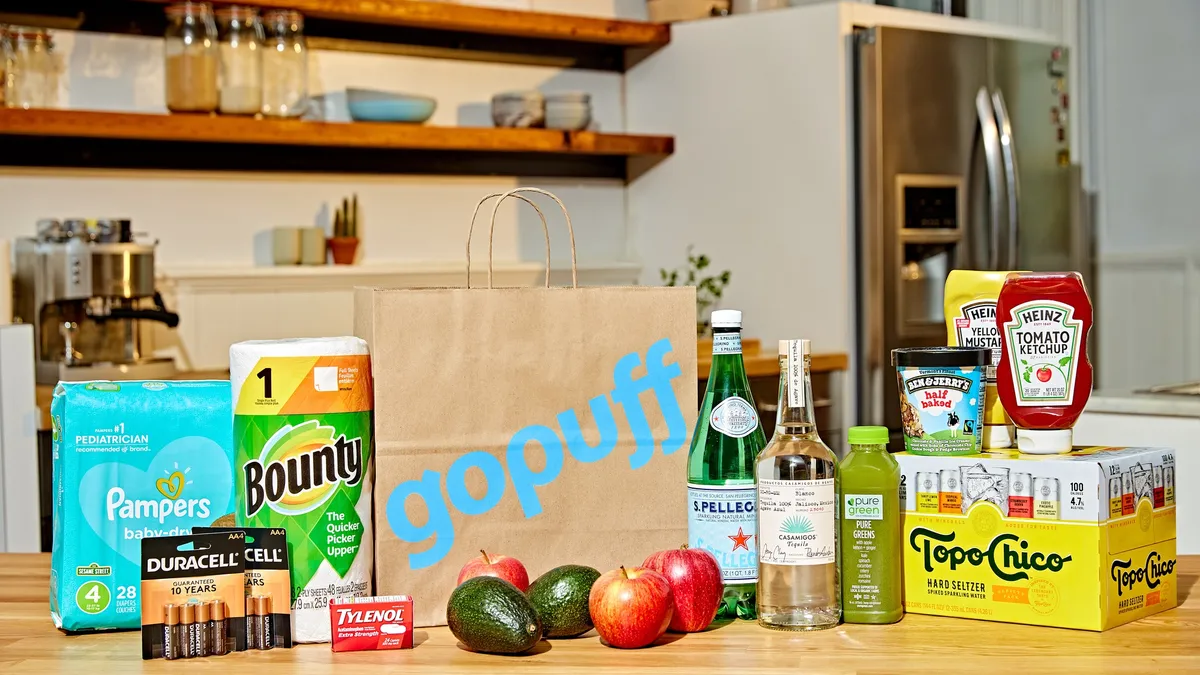Gopuff plans to lay off 10% of its global workforce and close dozens of dark stores as it grapples with a challenging market and leveling e-commerce demand.
In a July 12 memo to investors, founders and Co-Chief Executive Officers Yakir Gola and Rafael Ilishayev said the company will reduce its workforce in order to “remove overhead and drive operational efficiencies.” A Gopuff spokesperson said the company will be letting about 1,500 workers go.
In addition, Gopuff plans to consolidate its footprint by “closing and consolidating” 76 dark stores across the U.S., which the spokesperson said equates to about 12% of the company’s footprint in the country. The company plans to expand delivery zones at high-performing warehouses in order to continue serving most of the customers in impacted markets.
This follows Gopuff’s announcement in early April that it would eliminate 3% of its positions globally from its workforce of roughly 15,000 workers.
The founders said in the memo that Gopuff will focus on its “core” instant delivery offerings as well as promising new ventures, like selling Apple products. It will also lean into its advertising business, ramp up forecasting technology and improve inventory management.
The company will also invest further in international markets, most notably the U.K., where it has seen monthly order growth increase by a factor of 10 in less than a year, according to the memo.
“Today, the instant commerce industry that Gopuff created is at an inflection point,” Gola and Ilishayev wrote.
Instant delivery has exploded over the past two years as startups and established retailers alike have sought to capitalize on e-commerce growth spurred by the pandemic. But a few startups have gone out of business or scaled back in recent months as companies grapple with slowing demand and costly operations.
Tuesday’s memo noted that Gopuff, which was founded in 2013, has expanded rapidly in recent years — perhaps too rapidly.
“In a bull market, we were incentivized to scale our geographic footprint,” the memo noted. “In assessing the business in light of today’s economic environment, we found that we can be more efficient by focusing on maturing our high-performing MFCs to drive profitable growth in each market.”
Still, the founders struck an optimistic note for the future, noting that Gopuff plans to become profitable in 2024.
“These shifts not only accelerate our timeline to profitability, but they also take us back to our roots of keeping profitability at the core of every decision,” the memo stated.
















